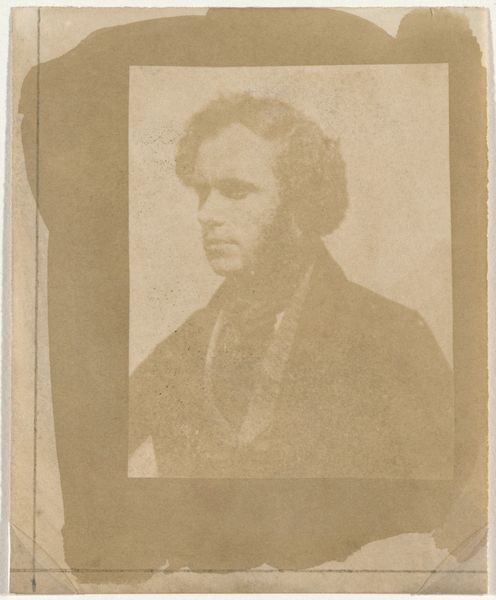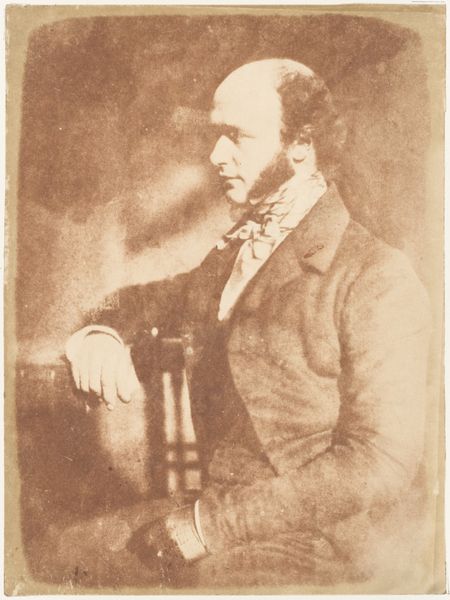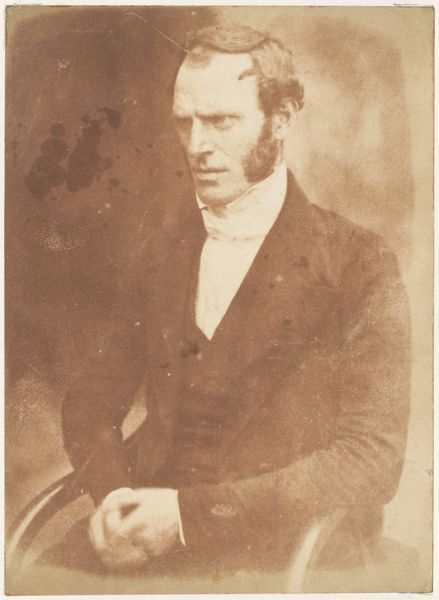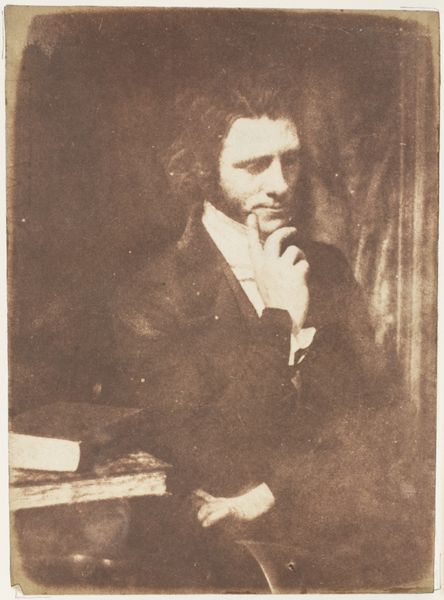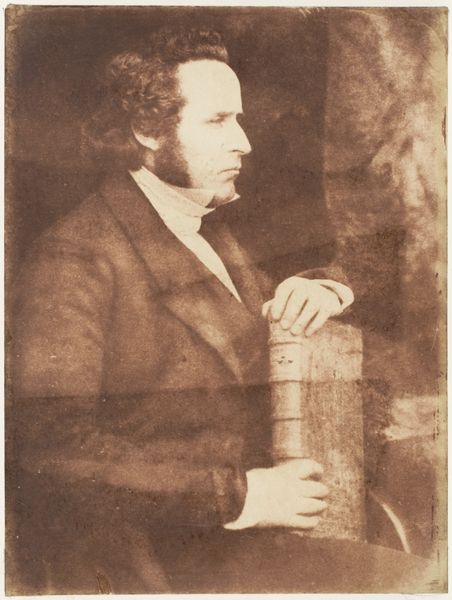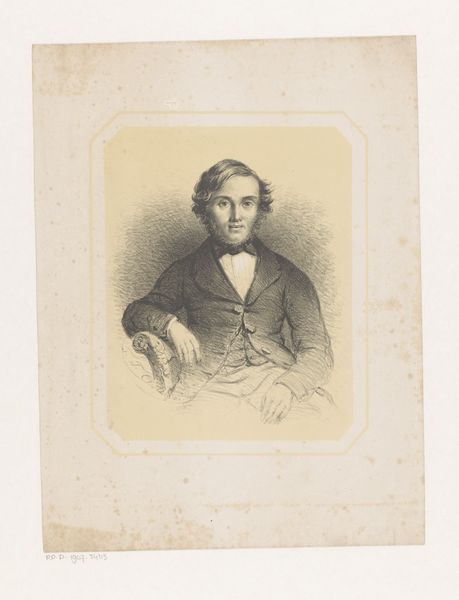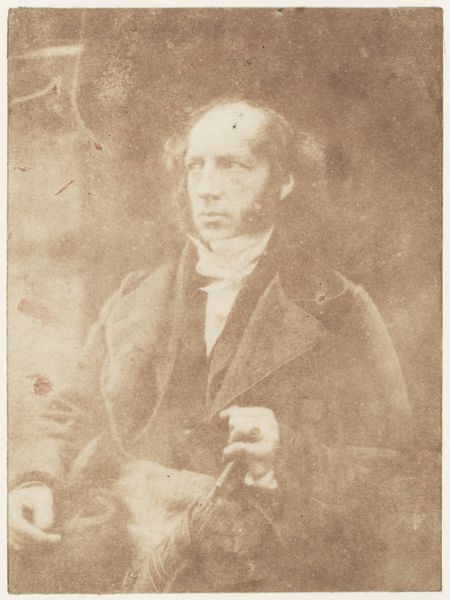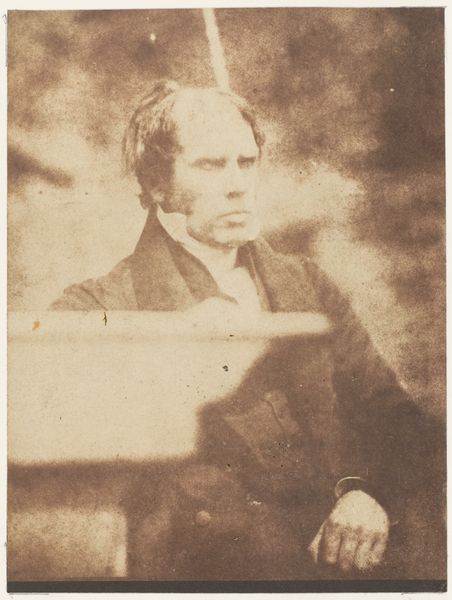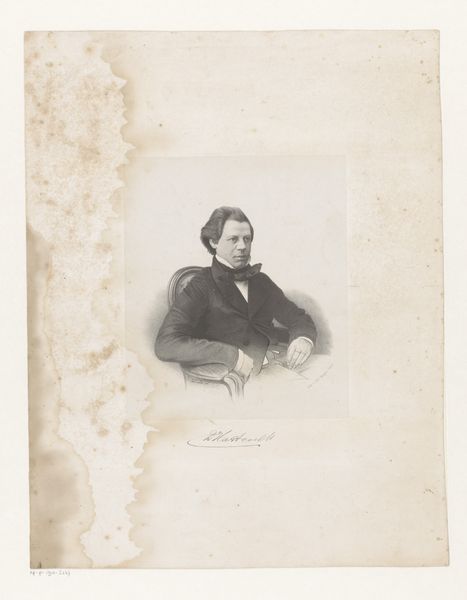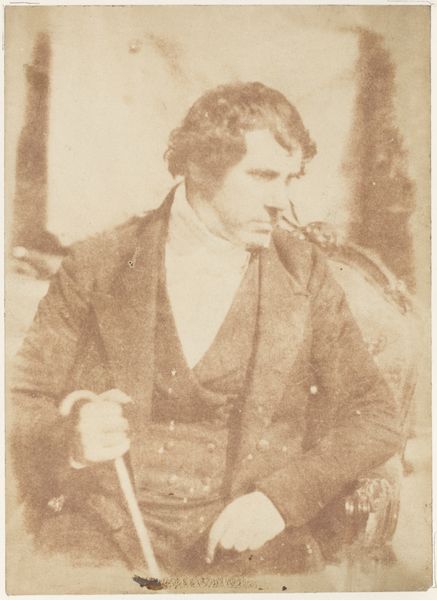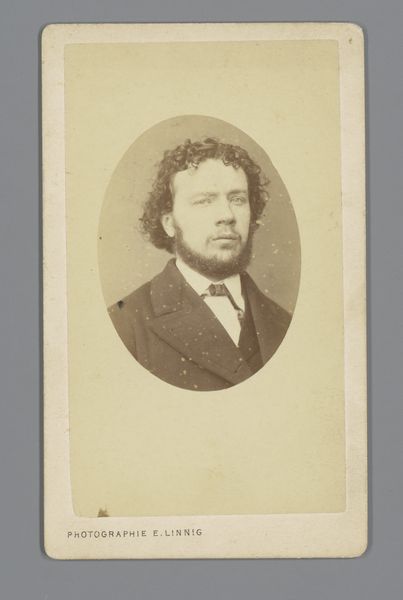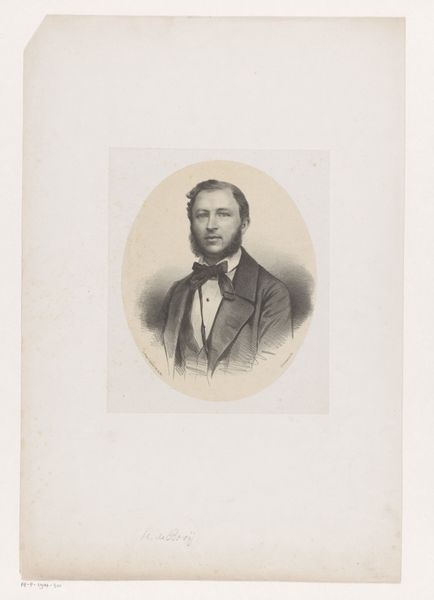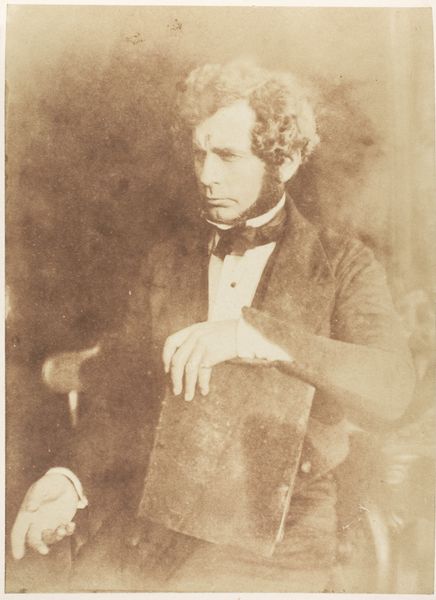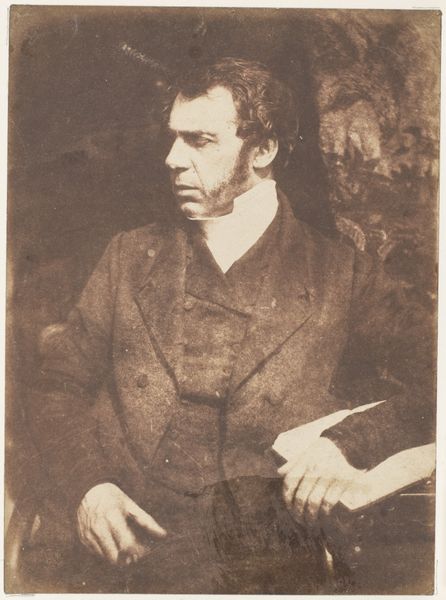
print, daguerreotype, paper, photography
#
portrait
# print
#
daguerreotype
#
paper
#
photography
#
romanticism
Dimensions: 8 × 6.3 cm (image); 11.4 × 9.3 cm (paper)
Copyright: Public Domain
This is William Henry Fox Talbot’s “Portrait of Henneman in Profile,” a paper negative produced in the early days of photography. Talbot pioneered the calotype process, using paper soaked in silver iodide, exposed to light in a camera, and then developed. Notice the resulting print's grainy texture and soft focus. This wasn’t just an aesthetic choice; it was the inherent quality of the materials. Unlike the sharp, clear images of daguerreotypes on metal, Talbot's method allowed for multiple prints from a single negative. Consider the labor involved. Each print required careful chemical preparation and handling, a time-consuming process far removed from today's digital snapshot. The calotype democratized image-making, moving it away from the expensive, specialized realm of painting, and towards a new era of mass reproduction. Talbot’s work bridges art and industry, subtly questioning our assumptions about what constitutes a valuable image.
Comments
No comments
Be the first to comment and join the conversation on the ultimate creative platform.
